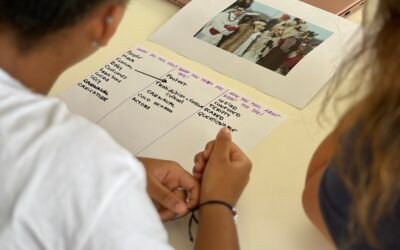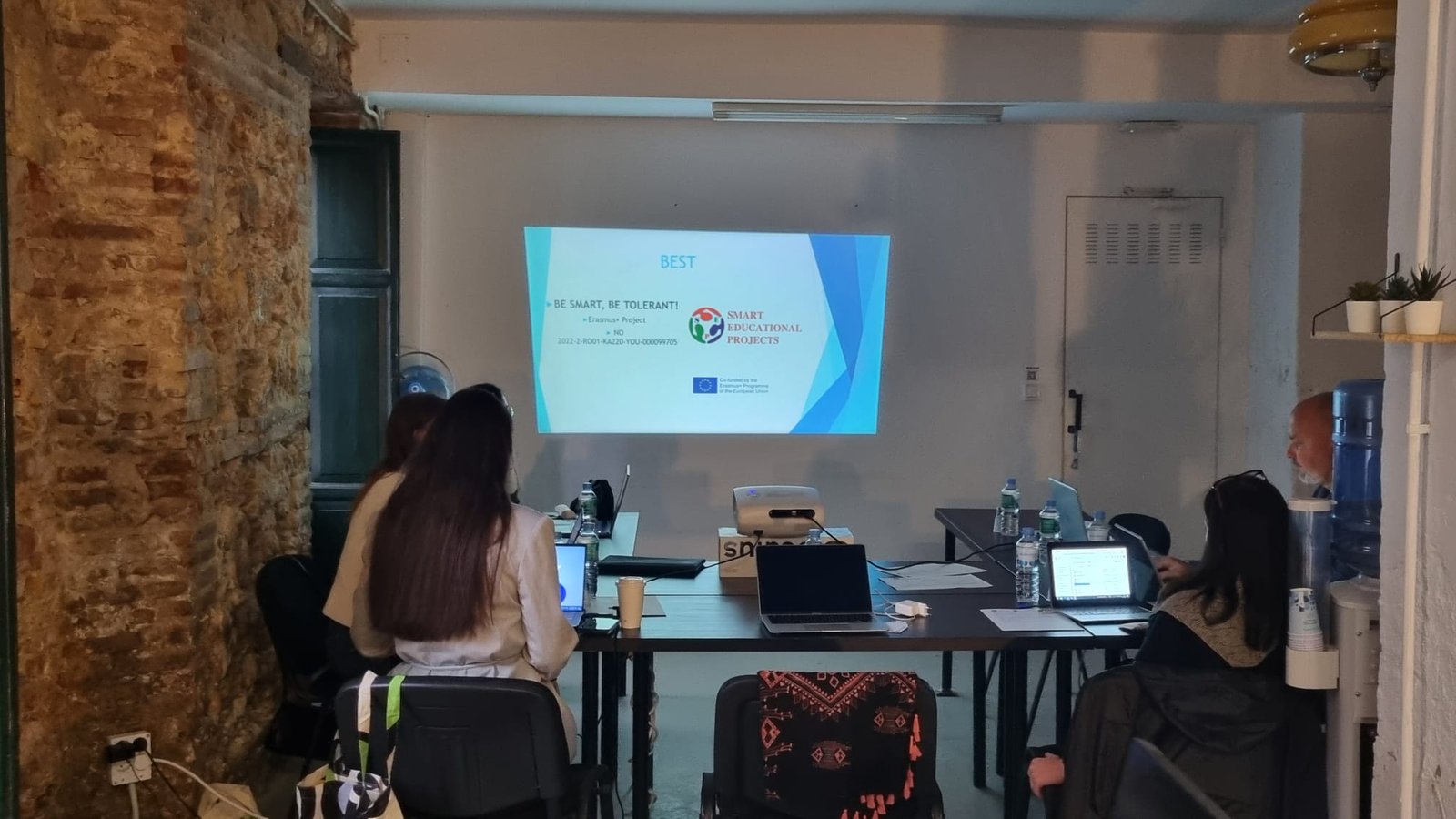Erasmus+ KA2 project
Be Smart,
Be tolerant
The project aims to develop a training kit for young people and youth workers to help them better respond to the challenges generated by the phenomenon of spreading fake news.
Project “Be smart, be tolerant! (BEST)” is co-funded by the Erasmus+ programme. The project number: 2022-2-RO01-KA220-YOU-000099705


project objectives
These objectives collectively aim to address the challenges posed by fake news by building the capacities of youth workers and instilling responsible behavior in young people.
Capacity Building for Youth Workers within Partnership
Enhancing the competences of 12 youth workers from partner organizations through transnational learning and exchange activities.
Fostering Responsible Behavior Among Young People
Cultivating responsible behavior in at least 60 young people by implementing national workshops in partner countries.
Empowering Youth Workers Beyond the Partnership
Empower 40 youth workers from organisations not directly involved in the partnership by equipping them with skills to combat fake news .
Raising Awareness Among Young People
Generate awareness among at least 1000 young people about the dangers associated with the spread of fake news through national awareness campaigns.
Establishing a BEST Network
Create the BEST network at the European level, uniting organizations actively engaged in youth education with a shared focus on combating fake news.
Developing BEST Toolkit
Develop a toolkit allowing youth workers to teach youth to learn how to identify fake news and limit its spread through social media sites.
Fighting Deception, Promoting Truth: Unmasking Fake News Together
The BEST project aims to increase the capacity of youth workers to carry out activities that develop young people’s skills to identify fake news and motivate them to get involved in combating this phenomenon.
PARTNERS
YOUTH WORKERS
AWARENESS CAMPAIGNS
YOUNG PEOPLE
Skills development
The project is dedicated to fostering a spectrum of essential skills crucial for navigating the complex landscape of information and combating the pervasive influence of fake news.
Central to our mission is the development of critical thinking abilities among youth workers and youth, empowering them to assess information critically, discern credible sources, and evaluate the reliability of news content. Additionally, we aim to cultivate a sense of active citizenship, inspiring youth workers and youth to play an active role in their communities by promoting responsible information-sharing practices and contributing to a more informed society.
- Critical thinking
- Active citizenship
- Media literacy
Latest news
Become a champion against fake news. Check out our resources, participate in our events, and stay informed about the latest developments in the fight against misinformation. Together, we can create a more informed and resilient society.
Workshops in Cyprus: Spotting Fake News
Be Smart, Be Tolerant: empowering youth & youth workers against disinformation in Cyprus During the first half of the year, series of national workshops took place as a part of the project aiming to equip youth workers and youth with the tools to combat...
Project Wrap Up in Valencia
The "Be Smart, Be Tolerant!" (BEST) project, funded by the Erasmus+ KA2 program, recently concluded a successful meeting in Valencia, Spain. The project brought together partners from 4 various countries (Romania, Italy, Spain and Cyprus) to address the growing issue...
“BEST” guidebook released
The “Be Smart, be Tolerant (BEST)” project aims to increase the capacity of youth workers to carry out activities that develop young people’s skills to identify fake news and motivate them to get involved in combating this phenomenon. To do that, the project partners...
have any questions? contact us:
DISCLAIMER
Funded by the European Union. Views and opinions expressed are however those of the author(s) only and do not necessarily reflect those of the European Union or the ANPCDEFP. Neither the European Union nor the ANPCDEFP can be held responsible for them.




